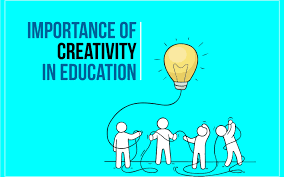Career and Study Success: A Holistic Approach to Achieving Your Goals
Achieving success in both your career and studies requires a well-balanced approach that includes motivation, effective strategies, and a mindset geared towards growth and improvement. The connection between career success and academic achievement is often more direct than many realize. A strong foundation in study habits, time management, and personal growth not only aids in academic success but also prepares individuals for career challenges. In this article, we’ll explore key strategies and habits that can help you succeed both academically and professionally.
1. Set Clear, Measurable Goals
Whether you’re focusing on your studies or your career, setting clear and measurable goals is crucial. For academic success, set specific targets for each semester, like aiming for a certain GPA, completing projects on time, or mastering a difficult subject. For your career, define your long-term aspirations and break them down into smaller, achievable goals.
For example, if your goal is to secure a job in a competitive field, identify the skills and qualifications required for that role and set incremental goals, such as gaining a relevant certification or improving your networking skills. Ensure that each goal is SMART (Specific, Measurable, Achievable, Relevant, and Time-bound), which will help keep you on track and motivated.
2. Develop Strong Time Management Skills
Time management is one of the most important skills for balancing both study and career responsibilities. Whether you’re juggling schoolwork, a part-time job, or internship, effective time management allows you to prioritize tasks and manage competing demands efficiently.
One strategy is to create a weekly schedule where you block off dedicated time for studying, career-related activities, and personal commitments. Use time management tools like calendars or task management apps to track deadlines and stay organized. The ability to manage your time effectively reduces stress, increases productivity, and helps you make consistent progress in both areas of your life.
3. Embrace Lifelong Learning and Self-Improvement
The pursuit of knowledge and self-improvement doesn’t stop after graduation. Lifelong learning is a vital component of career success. Continually acquiring new skills and knowledge will not only help you stay relevant in your field but also enhance your problem-solving abilities, creativity, and adaptability.
For career success, seek out professional development opportunities like certifications, workshops, or networking events. For academic success, always look for ways to improve your study techniques, such as experimenting with different learning strategies or staying current on the latest research in your field of study.
By maintaining a growth mindset, you position yourself for continuous improvement, which is key to both career and study success.
4. Focus on Building Effective Study Habits
Strong study habits form the foundation for academic achievement. Developing a structured approach to studying will help you retain information better, prepare for exams efficiently, and ultimately perform well in your coursework.
Some effective study habits include:
- Consistent Study Schedule: Set aside a specific time each day to focus on your studies. This consistency will make studying feel like a routine rather than a task.
- Active Learning: Engage with the material by taking notes, asking questions, and discussing concepts with classmates or professors. This reinforces your understanding and improves retention.
- Test Yourself: Practice self-assessment by using quizzes, practice exams, or flashcards to test your knowledge. Regular self-testing helps identify gaps in your understanding.
- Stay Organized: Keep your study materials, notes, and assignments well-organized so you can easily access them when needed. This reduces time spent searching for materials and allows for more focused study sessions.
When you apply these study strategies, you will notice an improvement in your academic performance, which will carry over into your professional life as well.
5. Develop a Network for Support and Opportunities
Networking is just as important in your academic journey as it is in your career. Building relationships with professors, mentors, classmates, and professionals in your field can open doors to new learning opportunities, internships, and even job offers.
Networking helps you learn from others’ experiences, gain advice on how to navigate academic challenges, and discover career options you may not have considered. Actively participate in campus organizations, attend career fairs, or connect with alumni to expand your professional network.
In your career, maintaining and nurturing professional relationships can lead to mentorship opportunities, collaborations, and job advancement. Having a network of trusted individuals in both your academic and professional spheres is an invaluable asset to your long-term success.
6. Take Care of Your Mental and Physical Health
Maintaining a healthy balance between work, study, and life is essential for both career and academic success. The demands of school and work can often lead to burnout if not managed properly. It’s important to prioritize self-care and wellness practices to keep your body and mind in top condition.
Incorporate regular physical exercise into your routine to boost energy levels and improve focus. Mindfulness, relaxation techniques, and sleep hygiene can help manage stress and improve cognitive function. Taking breaks during long study sessions or work hours allows you to recharge and return to tasks with a clearer mind and renewed motivation.
Incorporating self-care habits into your daily life ensures that you remain productive and healthy while balancing your academic and professional commitments.
7. Be Adaptable and Open to Change
Adaptability is a crucial skill in both your studies and career. In a rapidly changing world, students and professionals alike must be able to pivot and adjust their plans when necessary. Embrace challenges and unexpected changes as opportunities for growth rather than obstacles.
In your academic life, you may encounter new teaching methods, changing course materials, or unexpected projects. Being adaptable and open to change helps you navigate these situations effectively. Similarly, in your career, the ability to adapt to new technologies, industry trends, and workplace dynamics is essential for long-term success.
8. Develop Soft Skills for Career Advancement
While technical knowledge is important, soft skills are equally vital for career success. Skills such as communication, teamwork, leadership, problem-solving, and emotional intelligence can set you apart from others in the job market. Many employers value these skills because they contribute to a positive work environment and help teams collaborate more effectively.
In your studies, work on enhancing these soft skills by participating in group projects, engaging in class discussions, or taking on leadership roles in extracurricular activities. These experiences not only help you in your academic life but also prepare you for the demands of your future career.
Conclusion
Success in both academics and career is the result of strategic planning, effective habits, continuous learning, and personal growth. By setting clear goals, managing time effectively, building strong study habits, and prioritizing mental and physical health, students can lay the groundwork for both academic excellence and career advancement. Additionally, developing a growth mindset, embracing adaptability, and honing essential soft skills further enhances the ability to succeed in an ever-changing world.
Remember, career and study success are not just about achieving specific goals—they are about cultivating habits, attitudes, and skills that contribute to lifelong growth, achievement, and fulfillment.


